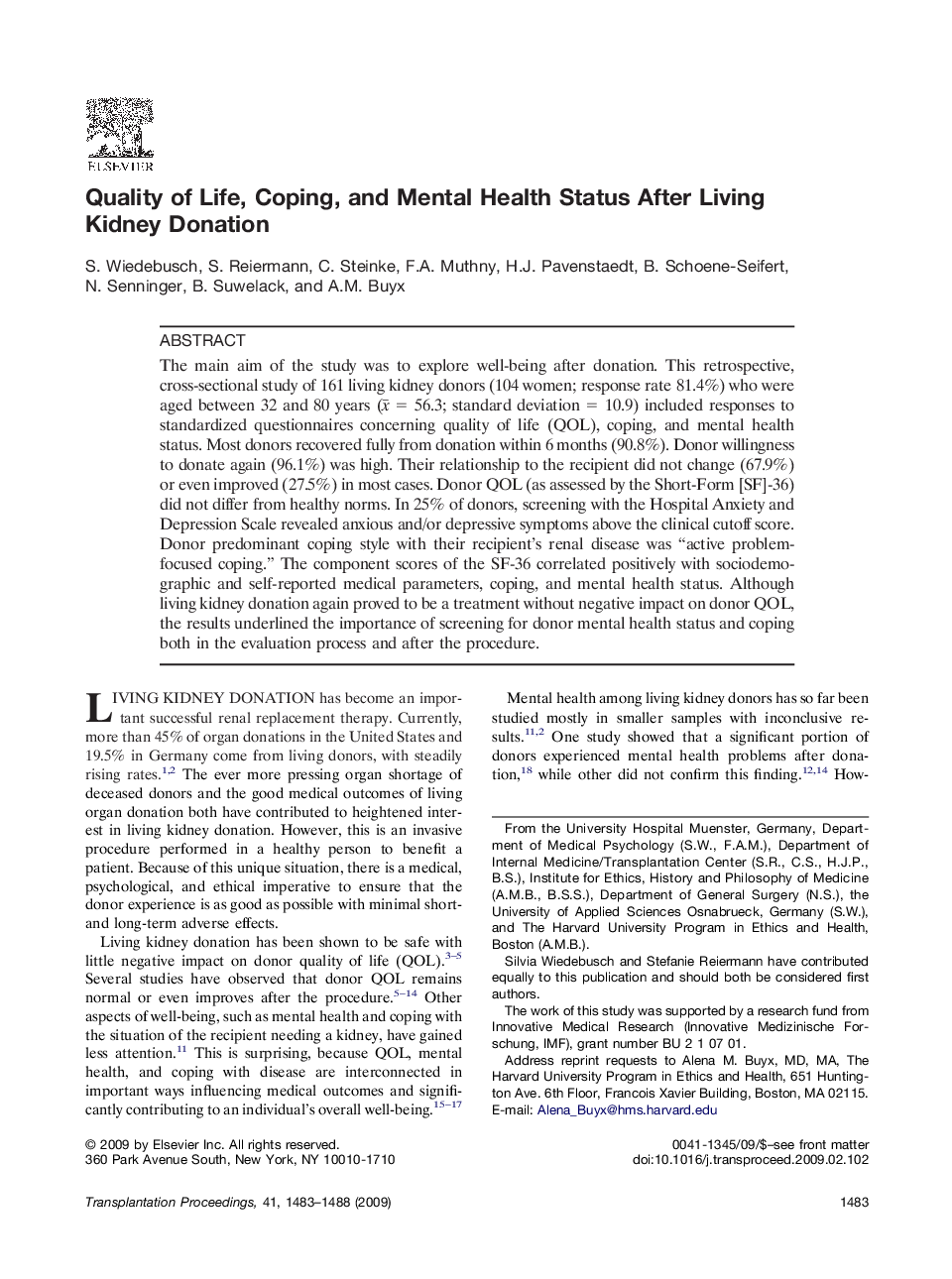| Article ID | Journal | Published Year | Pages | File Type |
|---|---|---|---|---|
| 4259220 | Transplantation Proceedings | 2009 | 6 Pages |
The main aim of the study was to explore well-being after donation. This retrospective, cross-sectional study of 161 living kidney donors (104 women; response rate 81.4%) who were aged between 32 and 80 years (x̄ = 56.3; standard deviation = 10.9) included responses to standardized questionnaires concerning quality of life (QOL), coping, and mental health status. Most donors recovered fully from donation within 6 months (90.8%). Donor willingness to donate again (96.1%) was high. Their relationship to the recipient did not change (67.9%) or even improved (27.5%) in most cases. Donor QOL (as assessed by the Short-Form [SF]-36) did not differ from healthy norms. In 25% of donors, screening with the Hospital Anxiety and Depression Scale revealed anxious and/or depressive symptoms above the clinical cutoff score. Donor predominant coping style with their recipient's renal disease was “active problem-focused coping.” The component scores of the SF-36 correlated positively with sociodemographic and self-reported medical parameters, coping, and mental health status. Although living kidney donation again proved to be a treatment without negative impact on donor QOL, the results underlined the importance of screening for donor mental health status and coping both in the evaluation process and after the procedure.
